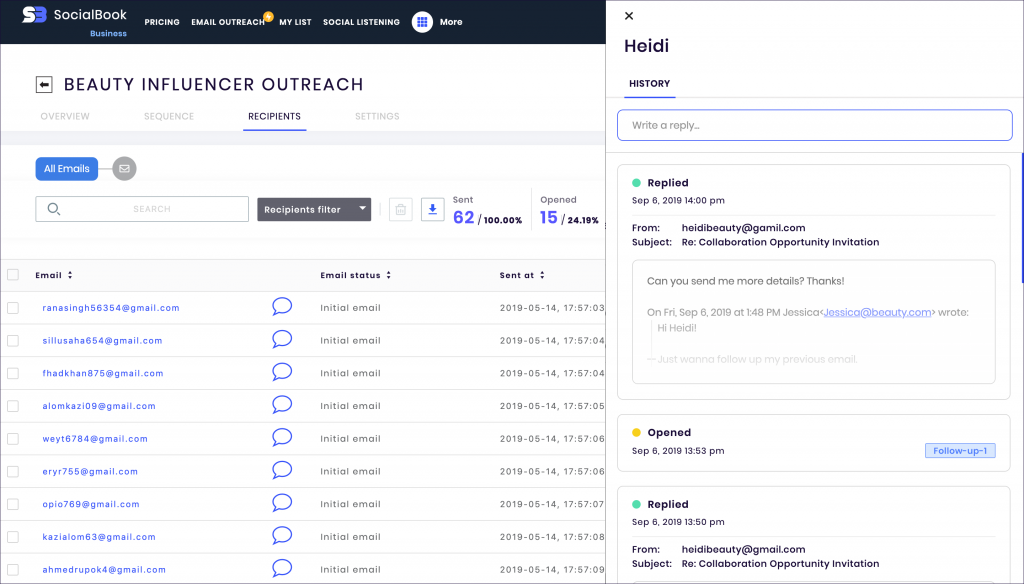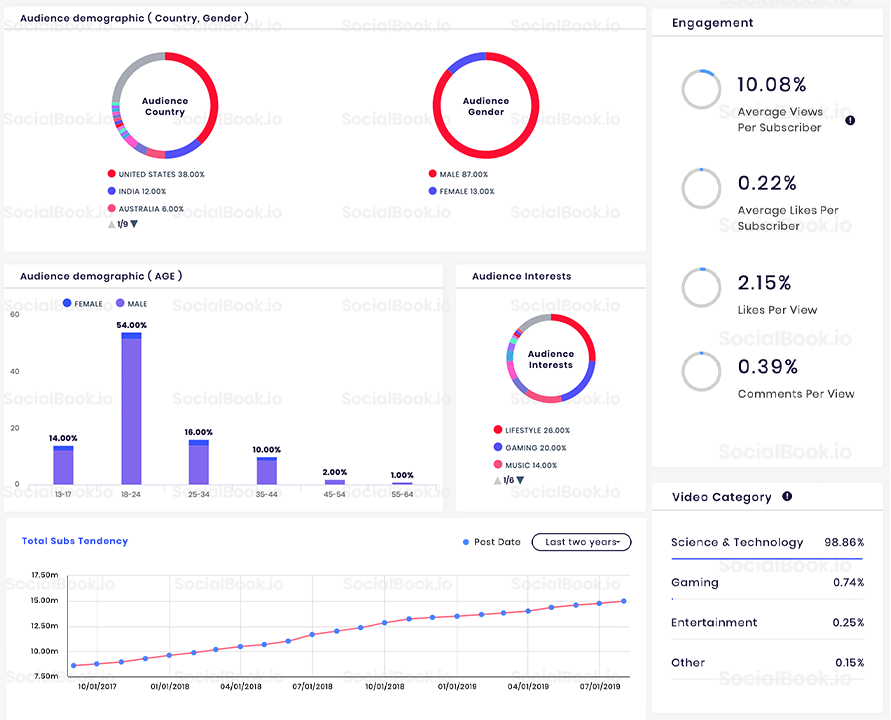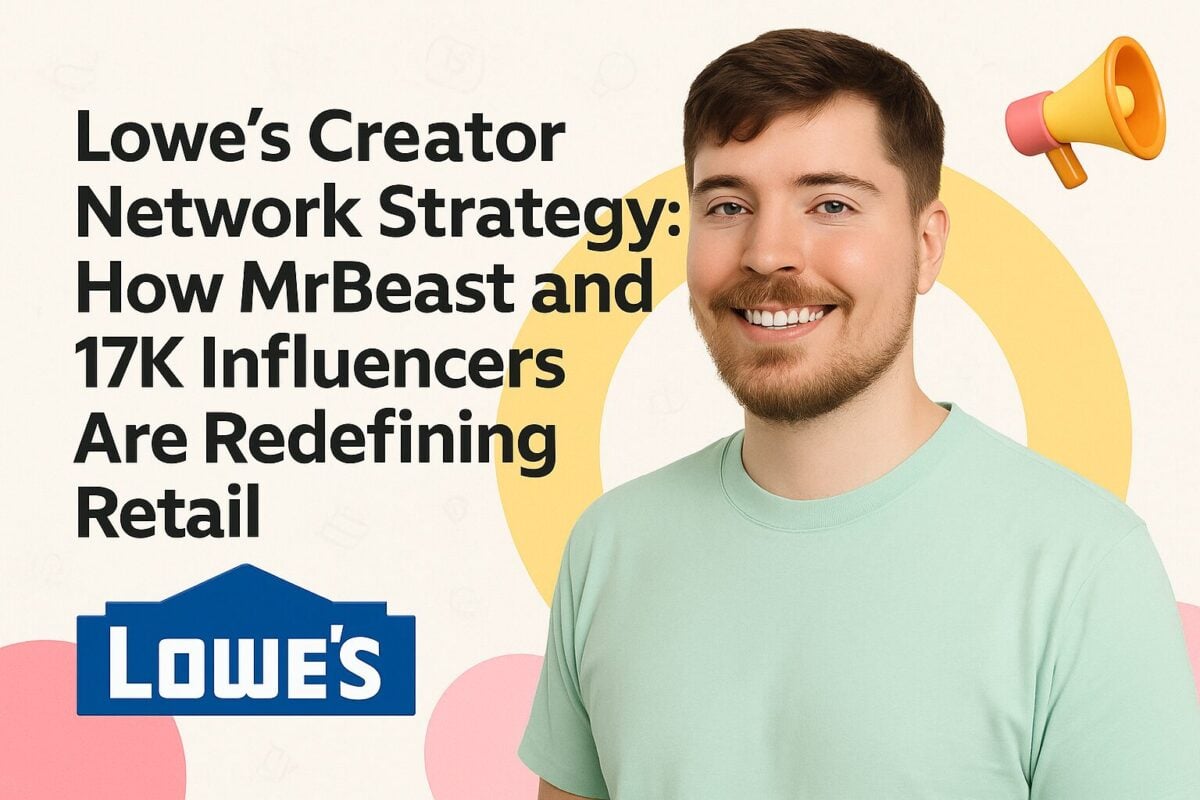In the early days of influencer marketing, businesses tried to find their influencers the old-fashioned organic way. They would spend hours laboriously scanning the internet, trying to determine who was influential in their niche. They would then slowly but steadily try and build up relationships with those influencers. This would usually take months. Eventually, if the businesses were lucky, the influencer would take notice of them and possibly show an interest in forming a relationship. Often, however, the influencer would continue life as usual and not even read the emails and other messages from businesses wanting a favor. Ultimately, too many firms gave up with influencer marketing, out of frustration of finding suitable influencers.
It never seemed so hard to find what you’re looking for in other business sectors. Often you could find somebody suitable just by looking up the Yellow Pages. It made sense, therefore, for somebody to create an influencer marketing equivalent of the Yellow Pages.
Before long, the concept of the influencer marketing platform saw the light of day. Not only could you use influencer marketing platforms to search for influencers, but you could also compare different influencers to see which were the best for your needs.
Nowadays, you have many influencer marketing platforms from which you can choose. The most recent Influencer Marketing Hub State of Influencer Marketing 2019: Benchmark Report found that there were 740 influencer marketing platforms and agencies in 2018, 320 of whom were new in 2018. Even allowing that some of these are agencies without their own influencer discovery tools, that still leaves a considerable number of influencer platforms, each offering a slightly different service.
That begs the question. How do you choose the right influencer marketing platform for your needs?
Here are several essential questions you should ask yourself to help with your decision making.
How to Choose the Right Influencer Marketing Platform:
- Question 1: Do I have my own influencer roster? If yes, how many influencers are on my roster?
- Question 2: Am I always recruiting new influencers? Which platforms am I looking for new influencers?
- Question 3: Once I have decided on the platform, which data do I care about most?
- Select Your Influencer Marketing Platform Based on How Well it Can Meet Your Needs
Question 1: Do I have my own influencer roster? If yes, how many influencers are on my roster?
While in some ways this may appear a no-brainer of a question, it is imperative. If you already have access to a group of top influencers in your industry, who in turn have contact with other leading influencers, you probably have no need for an influencer marketing platform. Sure, we’d love to know you at SocialBook, but we’re realistic enough to know that you are probably not in the market to search for new influencers.
However, just because you have picked up a few influencers over the years, may not mean that you have no need to discover more. You might want to expand your campaign in a different direction. You could perhaps simply wish to use additional influencers with a different set of followers than those with whom you currently work.
This question brings up a few fundamental sub-questions you should answer before you move on.
Sub Question 1.1: Do You Really Need a Platform?
Obviously, if you aren’t in the market to work with additional influencers, you won’t need a platform (unless you are simply after influencer information for other purposes, in which case SocialBook could be ideal for your purposes). However, even if you are after additional influencers, you may not need a platform. You might be able to use your current influencers as access to some of their contemporaries.
Alternatively, you might already know who you wish to establish a collaboration with, particularly if you are in their industry. In that case, the issue isn’t so much who you want as an influencer, but how you can contact them, and what you can offer them.
Sub Question 1.2: If you need a platform, what specific functions you are looking for?
If you decide that you want to use influencers (or add to an existing influencer roster) and that you should use a platform, you should consider the specific functions you’re looking for. Not all influencer marketing platforms are alike, and you want to know that you select one that will provide you with the data you need.
Some of the more common functions that you could consider when looking at influencer marketing platforms include:
- Communication – what types of communication facilities are provided by the platform. Does it include a range of communications options for influencers? Does it offer a direct connection to the influencers? Does it include some form of influencer marketplace, encompassing the entire influencer process? Does it help simplify external communications with suggested influencers?

- Tracking social media posts and their performance – does the influencer marketing platform offers suitable analytics and reporting services, allowing you to follow through your influencers’ posts so you can see how effective they are?
- Payout – does the influencer marketing platform include relationship management facilities, including the ability to directly make payments to influencers? Some platforms operate on a different model, with businesses posting projects and influencers bidding on these projects. Again, you would want to consider whether the platform covers the entire process, including influencer payout.
- Logistics – how easy is it to use a particular influencer marketing platform? Do they have simple procedures in place, or do you have to learn a complicated system?
Question 2: Am I always recruiting new influencers? Which platforms am I looking for new influencers?
If you decide that you haven’t already recruited all the influencers you might need, you should then consider how your organization functions. Do you recruit influencers regularly, or is it something you only do occasionally? How have you found your influencers in the past?
If you have used a platform to find influencers before, how did you find that experience? Do you feel that you were able to find suitable influencers for your campaigns? Did the platform provides you with enough data to help you with your decision-making? Did it provide you with too much data, confusing you as to which stats mattered the most? Did the platform provides you with enough help files, FAQs, and similar assistance to help you understand the details, and recognize what was necessary for your campaign?
Not all influencer platforms offer the same types of services. The most common types of the services provided are:
- Influencer discovery
- Relationship management
- Campaign management
- Influencer marketplace
- Third party analytics
- Influencer content amplification
If you’re focusing on recruiting new influencers, then influencer discovery will probably be an essential requirement for your platform. You will need to consider whether any of the other services will be relevant to your decision-making. For example, while an influencer marketplace might be nice, it is of little value to you if you don’t intend to use it, preferring to work with your influencers in-house.
Be aware that some influencer marketing platforms prefer to focus on just one or two of the above categories, and they do not all include influencer discovery. There are specialist platforms that solely provide third-party analytics about influencers. There are even some who specialize entirely on influencer content amplification.
Another factor that may influence your decision is that some influencer marketing platforms restrict themselves to just one or two social networks. There is little punt using a platform whose database of influencers aren’t on the networks you want to focus your campaigns.
SocialBook provides comprehensive, detailed data about influencers on YouTube, Instagram, and Twitch. We might not be ideal for somebody intending to run a Twitter-only campaign. We have chosen to specialize in providing comprehensive data (on our selected social networks). We also place emphasis on easy communication, allowing brands to send emails directly to influencers. SocialBook also specialized in easy management and in-depth analytics/reporting.

Question 3: Once I have decided on the platform, which data do I care about most?
One of the first steps you need to go through when setting up any influencer campaign is to decide upon your goals. Why are you running this particular influencer campaign? You really should answer this question before you do anything else, certainly before you select your influencers. Different influencers have different skills. They also attract their own specific audience – and you want that audience to match the types of people who will help you match your goals. For example, if you're going to use an influencer campaign to sell more of your products, you need to work with influencers whose supporters are close to your intended target market.
There are three key areas to look at when selecting your influencers:
- Relevancy
- Engagement
- Authenticity
Your aim, when using your selected platform, is to look at the data that will help you best meet these needs, i.e., you are looking for influencers who are the most relevant to your campaign goals, who have the best engagement, and who always come across as authentic.
Too many brands, simply go for the influencers with the most followers. However, that may not help your campaigns at all. If you’re trying to sell paint and wallpaper, you will probably perform far better using a home decorating influencer, perhaps with just 25,000 followers, than you would be with a big-name superstar, like Justin Bieber.
Select Your Influencer Marketing Platform Based on How Well it Can Meet Your Needs
There is little point in paying for influencer marketing services that you don’t intend to use. When it comes down to it, influencer marketing platforms are simply tools to help simplify the influencer process for you. So, it pays to analyze your needs first.
Once you have made your decision, use your platform of choice to pick the best influencers to meet your goals, and then use the data provided by the platform to monitor and track your influencers’ progress through the length of the campaign.


